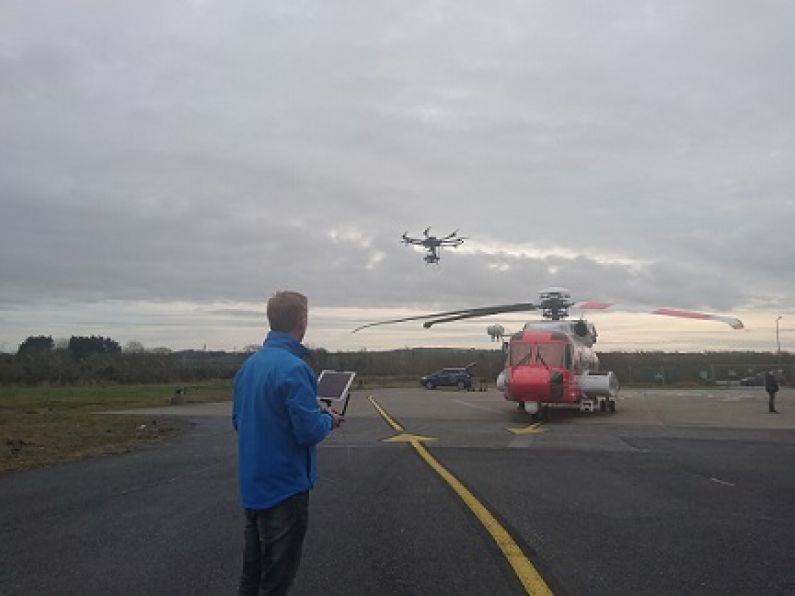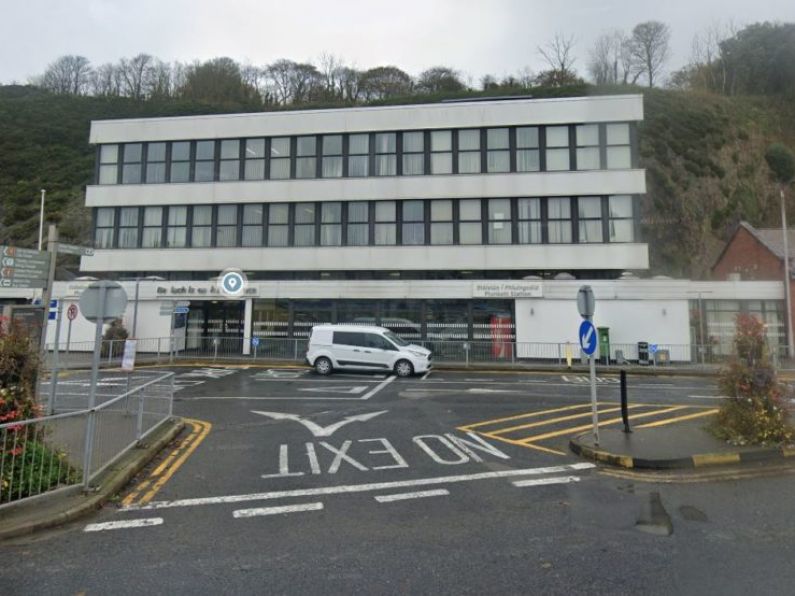The President of Maynooth University says Waterford Airport is the perfect place to test new drone technology.
A 6.3 million euro research project was launched at the airport this morning.
The institute together with partners from the aviation industry plan to develop systems to improve the safe and regulated operation of drones.
The programme will see researchers recreate flying environments for drones as digital models, taking into account a wide range of factors like air traffic, buildings and electricity lines, and then testing them in the real world at Waterford Airport and other selected locations around Ireland.
Waterford Airport was chosen as the ideal main testing location for U-Flyte because the facility possesses its own controlled airspace with a manned air-traffic control tower, providing U-Flyte researchers with a real-world, yet highly secure and safe flight test environment. The airport location also provides easy access to the coastline and offshore areas, allowing researchers to test higher performance drones for marine applications, such as ocean data collection and search and rescue.
Speaking at the launch, Minister of State for Training, Skills, Innovation, Research and Development, Waterford's John Halligan TD, said: "The U-Flyte programme will play a hugely important role in developing drone technology for use around the world, and it is using Waterford Airport as a test bed. This highlights Ireland’s ability to ‘punch above its weight’ when it comes to the research and development of science and technology, as well as how quickly ‘Ireland Inc.’ can bring together diverse industry stakeholders to drive progress."
Commenting on the launch, Dr Tim McCarthy said: "Drone technology has the potential to be used for a wide range of practical applications, from the simple delivery of online shopping, to capturing data for maps of farms, forests, lake and coastlines, and providing security surveillance in vulnerable areas. Experts even foresee drones being used to transport life-saving medical supplies, or coming to the aid of swimmers, making search and rescue operations safer and more efficient than ever before. However, new research is required to ensure that drones can operate safely and securely. This project will be using the latest navigation, optical, and radar sensors on-board our drones to gather data and feed it back through a system of connected secure networks to powerful computing platforms."
Maynooth scientist leads €6.3M @scienceirel /Industry Project in Drone Operations Research https://t.co/SvbK4NzBY7 #MUResearch pic.twitter.com/gPAX1SA1o2
— MU_Research (@MU_Research) March 26, 2018
Unless they have secured special permission, drone operators are limited to maintaining their drones within 300m circumference and in sight of the operator at all times, and at no more than 120m flying height above the ground. These guidelines, although necessary, restrict the wider development and uptake of drone applications and services – not only in Ireland but also across the globe.
The aim of U-Flyte is to tackle the current global log-jam impeding the wider development of drone operation and the roll-out of commercial services by providing the necessary research, data and case studies to guide agencies and industry in allowing drones to safely fly further and higher than the current limits.
Dr Tim McCarthy said: "U-Flyte is going to play a vital role in helping the development of drone applications, as well as give us essential data, which in turn, will contribute greatly to how we teach artificial intelligence (AI), robotics and data science at Maynooth. The input from our industry stakeholders means we will have access to real-life scenarios and challenges, ensuring more robust modelling and useful applications."
Margie McCarthy, Director of Innovation and Education at Science Foundation Ireland commented: "Science Foundation Ireland is delighted to support Maynooth University’s U-Flyte initiative. The potential societal impact of drone technology spans multiple sectors including agriculture, marine, emergency services, and transportation. However, drone capabilities have outpaced the supporting regulations and technologies. The SFI Strategic Partnerships Programme facilitates the collaboration of key researchers, government bodies and industry partners to collectively pave the way for U-Flyte and other disruptive technologies to challenge our norms and capitalise on the advantages offered by innovative and impactful research and development."
Professor Philip Nolan, President of Maynooth University said: "Today’s launch of U-Flyte serves to underline Maynooth University’s position as a scientific leader in an industry that is at the forefront of research and innovation. We are tremendously proud of this project and believe Maynooth University is uniquely positioned to carry out what is truly future-setting research because of the strong relationships with our industry partners and the interdisciplinary research strengths we bring to bear on an issue as multi-faceted and complex as the future of drone operations."
Maynooth scientist leads €6.3M SFI / Industry Project in drone operations research https://t.co/znTZwnbKG9 #BelieveInScience pic.twitter.com/IIr7BkHdzl
— SFI (@scienceirel) March 26, 2018












